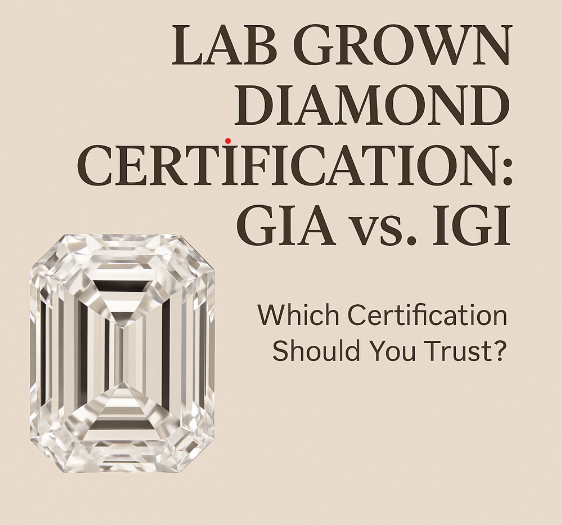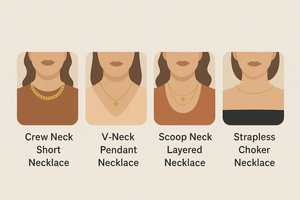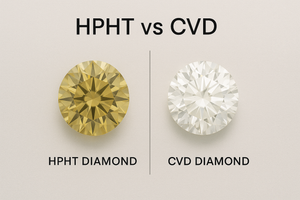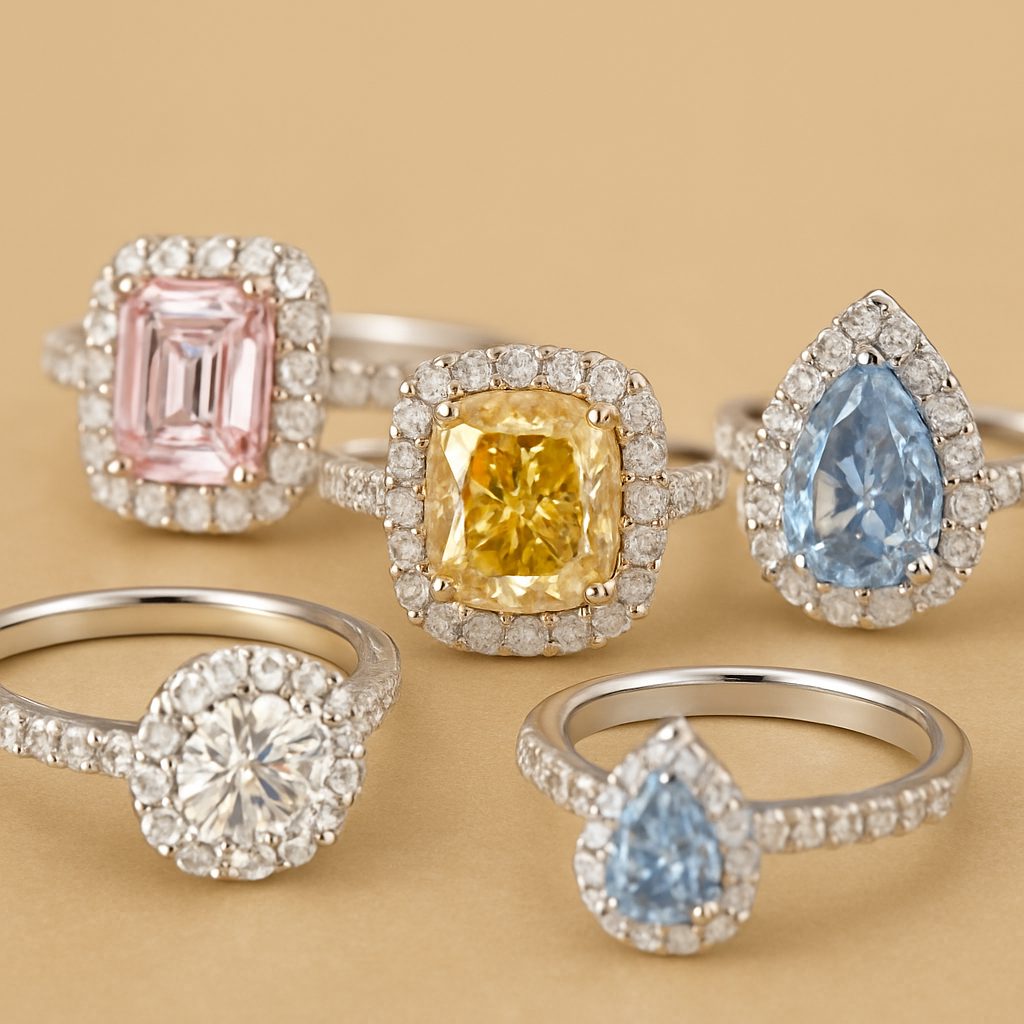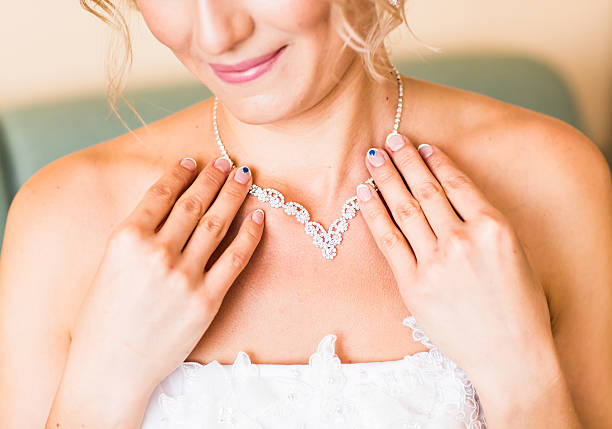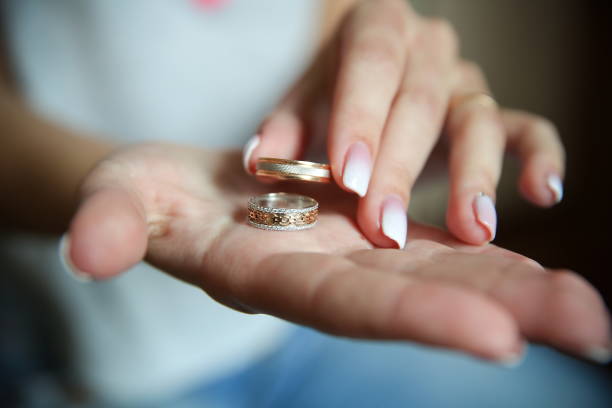When shopping for a lab-grown diamond, beauty and brilliance might catch your attention—but certification is what makes your investment safe. Whether you're proposing or treating yourself to a sparkling piece, knowing the difference between GIA and IGI certification is a savvy decision. At San Liora, we believe every buyer is entitled to clarity and assurance when selecting a certified diamond.
Let's take a closer look at the two largest lab-grown diamond grading names out there—GIA (Gemological Institute of America) and IGI (International Gemological Institute)—so you can know exactly what you're getting and why it matters.
📄 Why Diamond Certification Matters So Much
A diamond certificate is your diamond's passport, not just some piece of paper. It demonstrates the diamond's authenticity and verifies its quality using established standards. As lab-grown diamonds gain popularity, certification is important for:
Confirming that the diamond is not mined but rather produced in a lab
- Verifying its carat, color, clarity, and grade
- Maintaining insurance or resale value
- Providing buyers with peace of mind and transparency
- However, not every certification is created equal.
Here, GIA and IGI come into play, each providing a unique grading methodology.
🏛️ GIA – The Industry's Gold Standard
The most widely respected diamond-grading name in the industry is GIA (Gemological Institute of America), which has existed since 1931 and long been known as the world's most conservative, most reliable, grading authority. Although GIA was initially sluggish to add lab-grown diamonds to its certification program, now it grades them with the same level of intensity as it reports natural diamonds through detailed reports.
✨ GIA Offering Lab-Grown Diamonds
- A clear notation that the diamond is "Laboratory-Grown"
- Grading for the 4Cs: Cut, Color, Clarity, Carat
- Laser inscription of the report number on the diamond girdle
- A QR code for digital verification of the report
- Updated reports since 2019 with improved terminology and format
✅ Advantages:
- Trusted worldwide in the jewelry and resale industry
- Very strict and consistent grading
- Respected by appraisers and investors
⚠️ Disadvantages:
- Tends to give lower color and clarity grades than IGI
- Higher-priced and more sluggish in publishing reports
🌍 IGI – The Accessible Lab-Grown Expert
One of the first labs to use lab-grown diamonds was the International Gemological Institute (IGI), which was established in 1975. Due to its early adoption, major lab-grown retailers and e-commerce brands now use it as their preferred certifier. IGI is renowned for its user-friendly reports, speed, and availability.
💎 What IGI Provides:
- Certification for lab-grown diamonds produced by HPHT and CVD
- An unambiguous designation of "Lab-Grown Diamond"
- Diagrams of inclusion plots (a map of internal defects)
- The complete 4Cs are graded along with polish, symmetry, and fluorescence.
✅ Advantages:
- Faster and more economical report processing
- Typical in the bridal and retail markets
- Report format that is easy to read
⚠️Cons:
- Color and clarity grading is a little more lax.
- Not as esteemed for investment or resale as GIA

🧠 Real-Life Example
Consider selecting a 2.0 carat round lab-grown diamond for your engagement ring.
- A diamond certified by the GIA may have a color grade of H and a clarity of VS2.
- Although they are technically identical, the same diamond by IGI may be designated G color, VVS2 clarity.
This simply demonstrates how grading standards vary and why it is crucial to understand them when comparing expenses and value; it does not mean that one lab is incorrect.
💬 Which One Should You Choose?
Choose GIA if:
- You desire the most conservative, internationally recognized report.
- You're concerned with long-term resale or insurance value.
- You're willing to pay a little extra for the highest quality.
Choose IGI if:
- You're looking for bargains but still desire legitimate certification.
- You prefer quicker turnaround and greater availability.
- You're purchasing a diamond mainly for personal or bridal purposes, not resale.
At San Liora, we provide both alternatives depending on your choice—and we're pleased to assist you in deciphering the certificates to make an informed decision.
💡 Final Thoughts: Certification Equals Confidence
The most crucial lesson is to never purchase a lab-grown diamond without certification, regardless of whether you choose GIA or IGI. It serves as your diamond's ID card, confirming its worth, guaranteeing openness, and safeguarding your tranquility.
You can message us at any time if you're still not sure. Whether you're choosing your forever piece or organizing a surprise proposal, our staff at San Liora is here to help.


